Cultivating Conservation: Slidell ISD’s Vision for Experiential Learning
In the heart of North Texas ranch country, a small district is making a big statement about the future.
Slidell ISD, a 2A district located about 35 minutes northwest of Denton, spans three agriculture-focused counties. In May 2023, the district passed a $25.9 million bond, with the majority of funds allocated for a new elementary school, replacing the original 1940s-era structure. The new facility spans more than 45,500 square feet and is designed to reflect the community’s rural roots and strong connection to the land.
Slidell Elementary School will blend curriculum with agriculture and natural resource education, incorporating larger classrooms, flexible breakout spaces, a storm shelter gymnasium, and a cafetorium. At the heart of the design is a strong connection to the outdoors, highlighted by 22 garden beds planted with native species and two rainwater cisterns prominently featured along the school’s front façade.
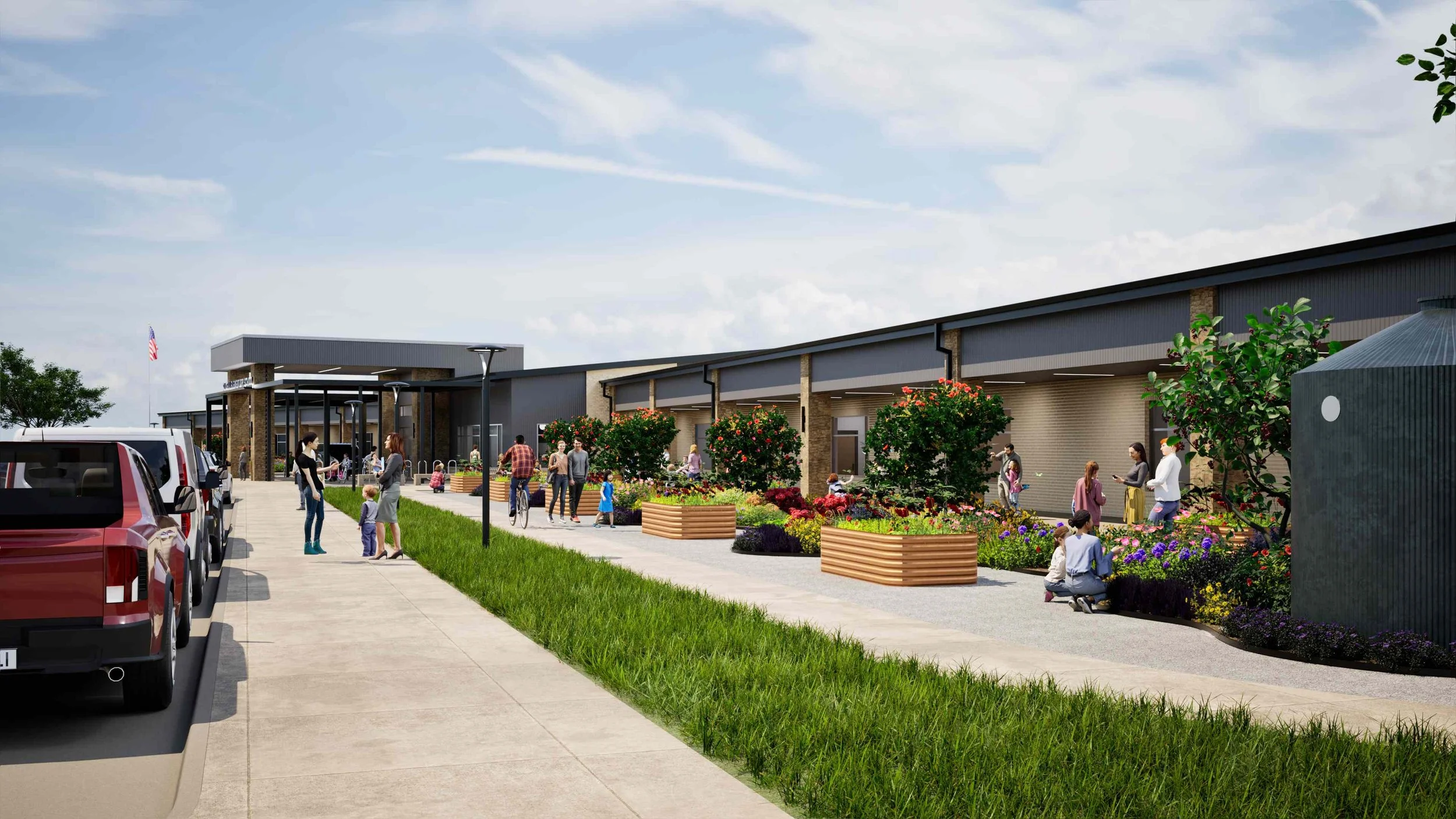
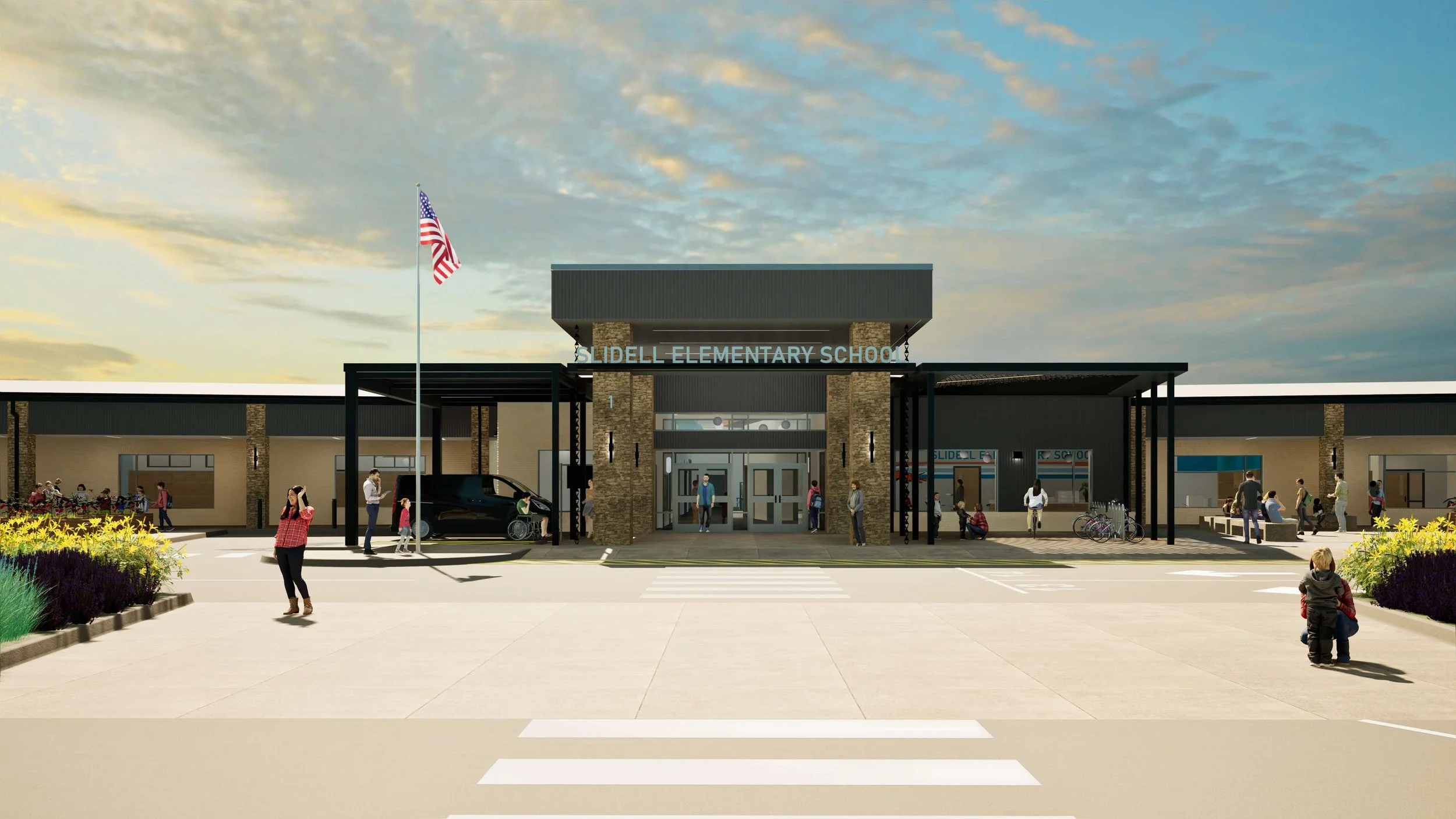
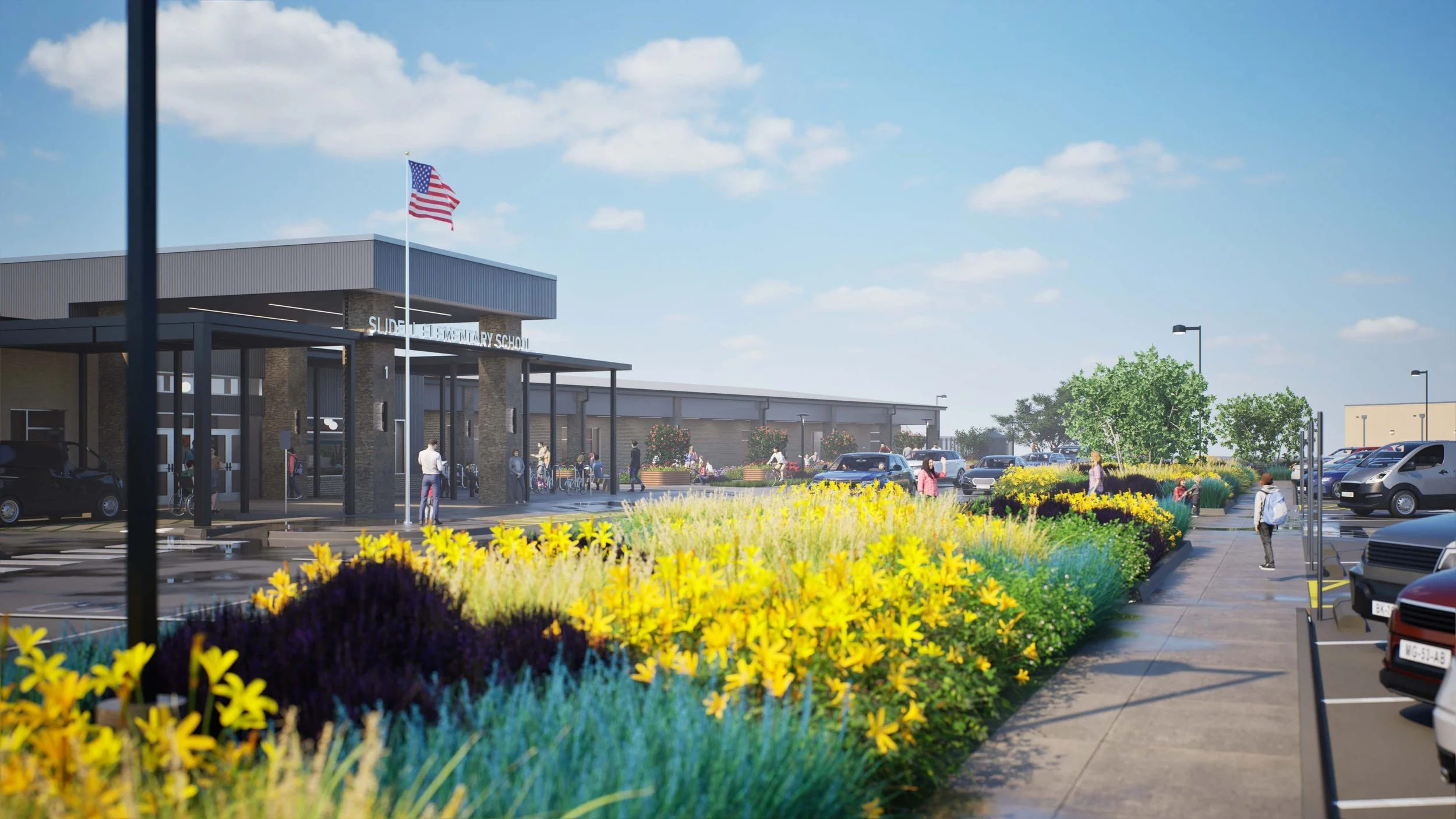
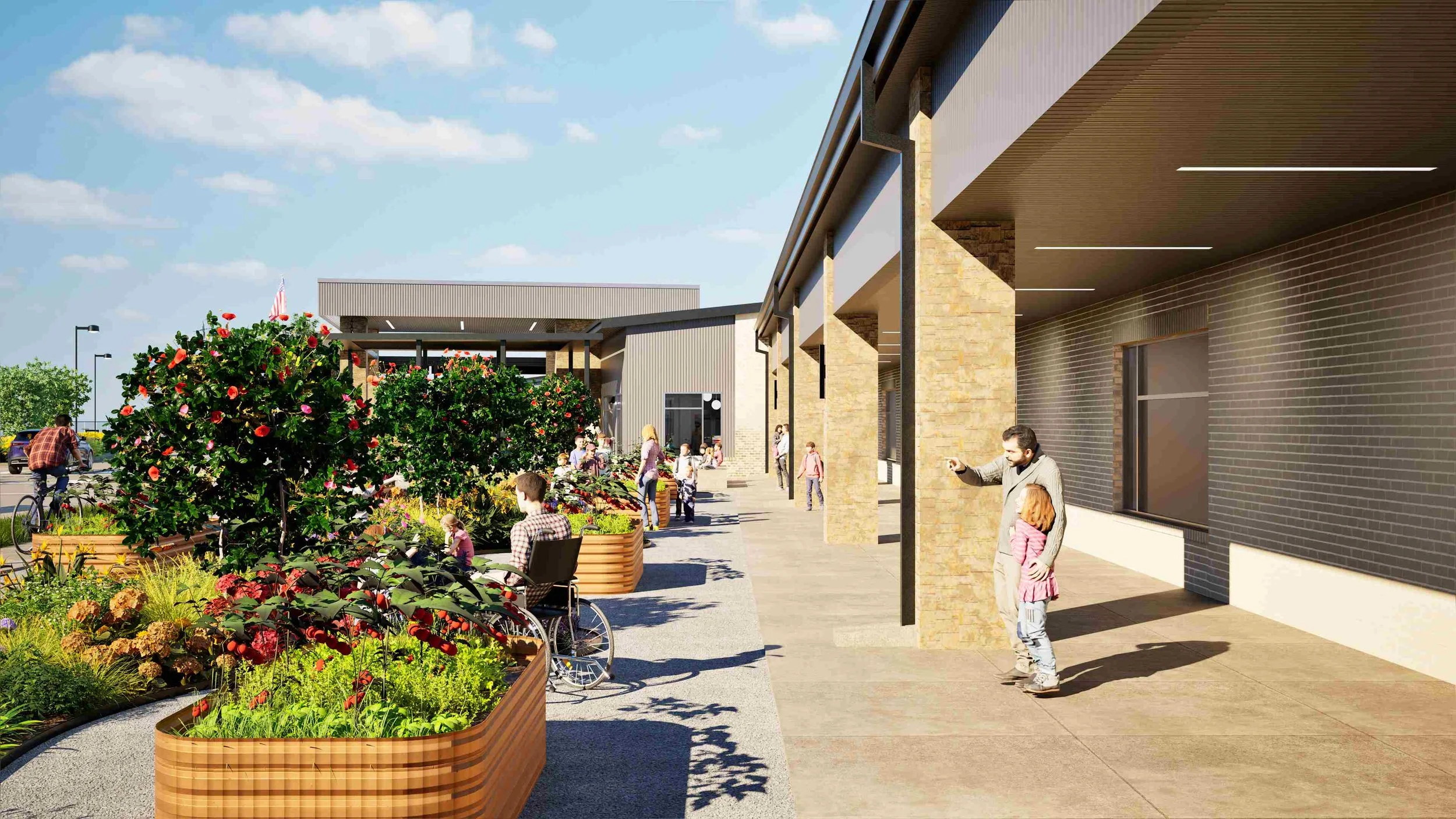
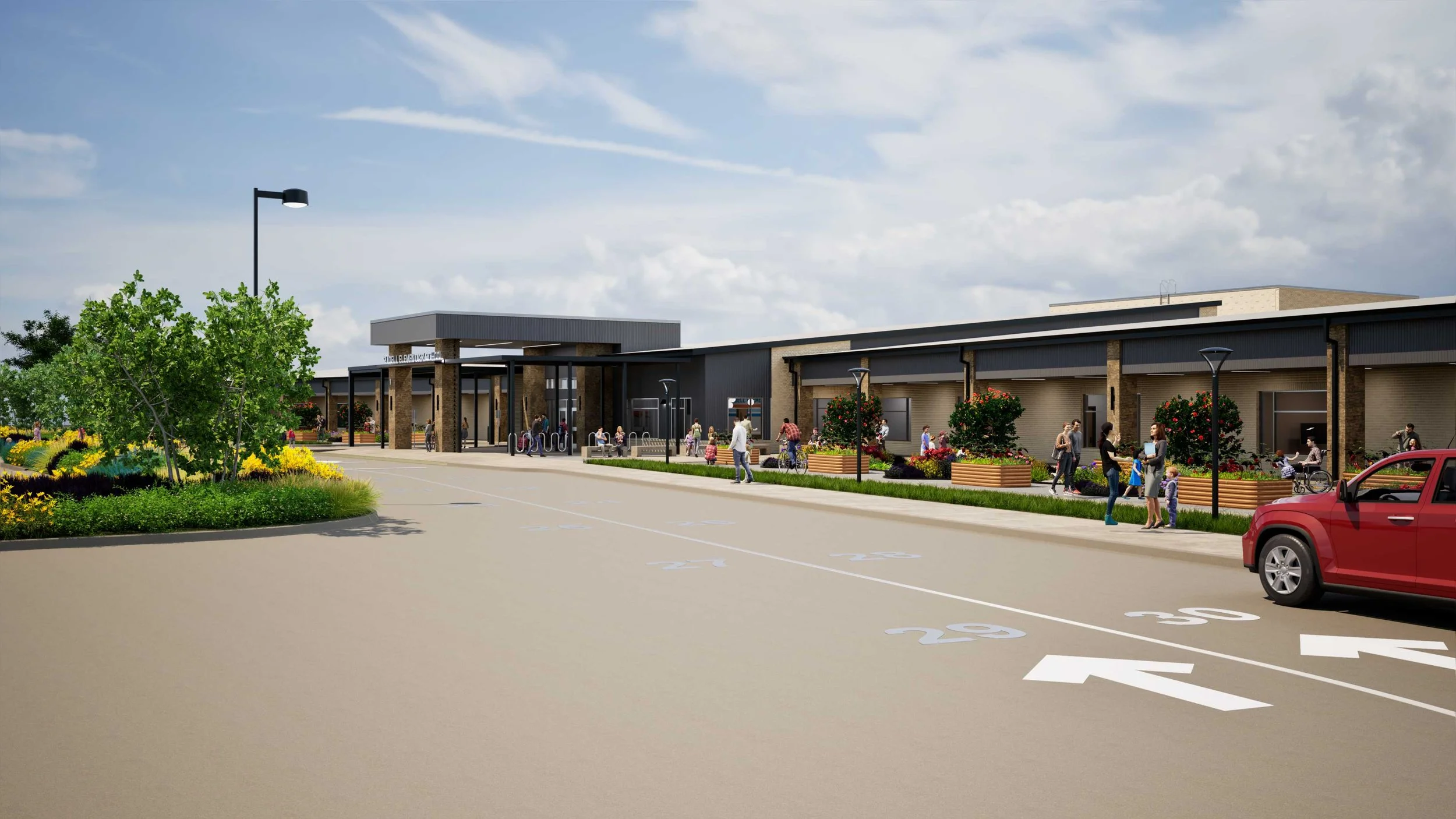
This seamless relationship between indoor and outdoor learning spaces supports Slidell ISD’s commitment to experiential education and environmental awareness. Each class from kindergarten through fifth grade will be responsible for maintaining its own garden bed, using harvested rainwater from the cisterns. Over the course of the school year, this hands-on approach will help students gain a deeper understanding of where food comes from and how ecosystems function.
Placing the gardens at the front of the school was an intentional move — meant not only to encourage daily interaction but also to educate the wider community on water conservation, environmental stewardship, and sustainable food systems.
In recognition of its conservationist initiatives, Slidell ISD received the Water Conservation Grant to support its rainwater harvesting program. The achievement was made possible with the expertise of Patrick Dickinson, a horticulturalist and landscape designer at Rooted In. Working closely with WRA’s design team, Dickinson reviewed several early models of water collection systems and advised on the solution best suited for Slidell Elementary School. The district plans to offer public tours of the gardens, creating a model for outdoor education in rural schools.
Former Superintendent Taylor Williams was a key advocate for incorporating natural resources into the school from the start of the design process.
Slidell ISD’s educational approach emphasizes real-world experiences that foster academic growth, a strong sense of community, and values like responsibility and compassion. Conservation and place-based learning were guiding principles throughout the process, shaped through a close partnership between the district and WRA’s team. Led by Mary O’Brien, AIA, NCARB, Partner, and lead designer Jessi Gahl, the team worked alongside sustainability manager Jennifer Spring to thoughtfully integrate systems that support outdoor learning and environmental education.
“Our design emphasizes learning through experience. By placing garden beds at the front of the school, we created a space where students can observe, participate in, and reflect on the natural processes that shape their world.”
Slidell Elementary is scheduled to open in fall 2025, serving as a beacon of experiential learning and environmental awareness for the entire community. With its community-centered design and integration of hands-on learning opportunities, the school will not only meet the academic needs of students, it will also nurture their curiosity, resilience, and respect for the natural world.
